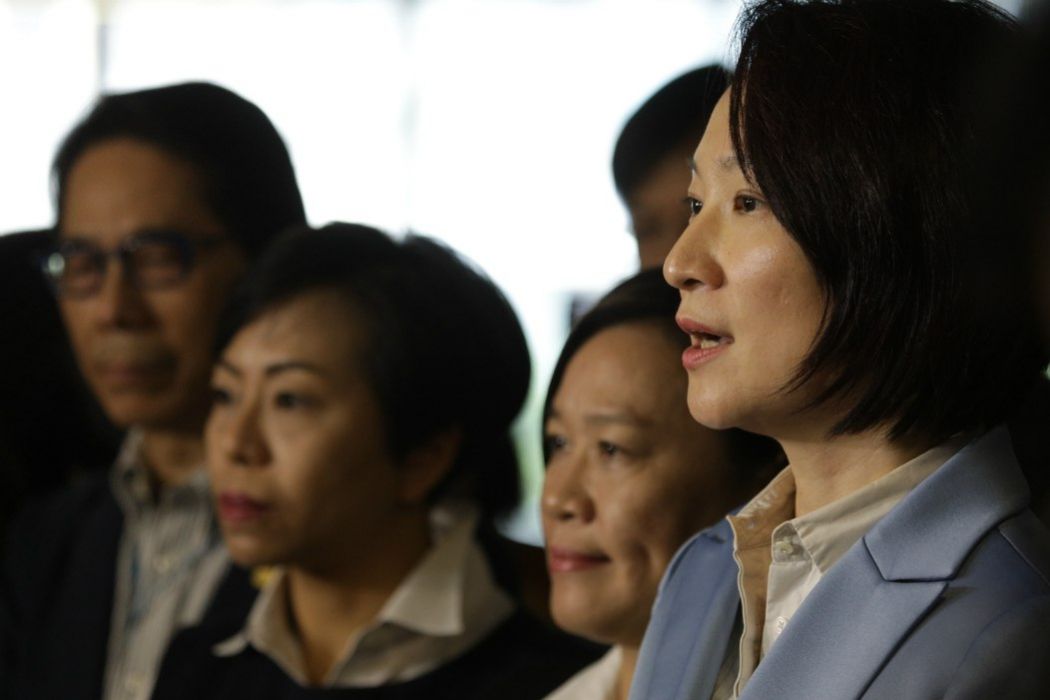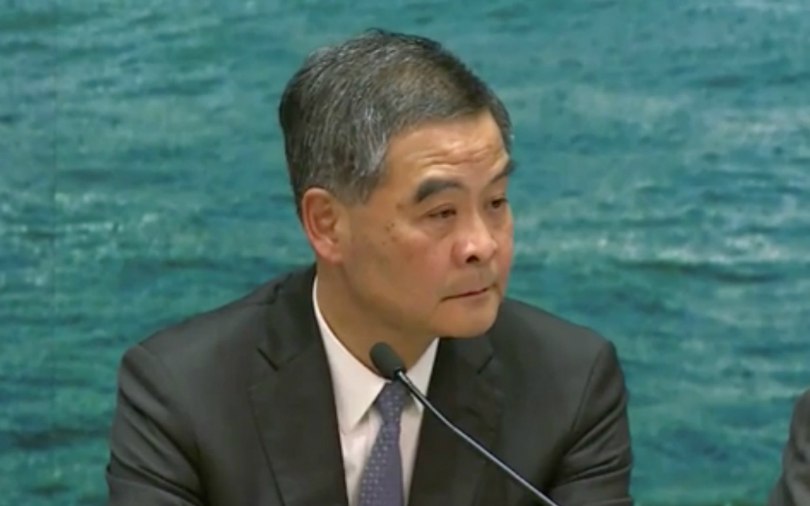Pro-Beijing parties have said that Beijing’s imminent interpretation of the Basic Law will strike a blow to the growing Hong Kong independence movement.
The oaths that two localist Youngspiration lawmakers took in the legislature last month were deemed an insult to China by some, triggering a legal challenge by the government. On Friday, Beijing made preparations to interpret sections of Hong Kong’s mini-constitution which relate to pledging loyalty to China.
Starry Lee Wai-king, chair of the largest pro-Beijing party in the Legislative Council, said that the interpretation is in accordance with the Basic Law and public opinion.

“The matter of Hong Kong independence movement is a major issue of right and wrong, it is challenging the One Country, Two Systems principle, and even affecting the unity of the country,” said Lee, of the Democratic Alliance for the Betterment and Progress of Hong Kong.
“I believe the Standing Committee of the National People’s Congress intends to give a clear message that the central government has no room to make compromises and will not give space to let the Hong Kong independence movement grow.”
‘Not a monster’
Wong Kwok-kin, veteran lawmaker of the Federation of Trade Unions, said the party supported Beijing’s move.
“The Basic Law interpretation is a constitutional power, it is not a monster – it is beneficial to strike blows to the Hong Kong independence movement and to defend the implementation of the One Country, Two Systems principle,” he said. “We hope, through this Basic Law interpretation, it can be established in Hong Kong’s constitutional system that Hong Kong’s independence movement – such an arrogant thought – can be suppressed.”
Pro-Beijing lawmaker Alice Mak says that a ruling set to be handed down from Beijing on the oath-taking legal case will not affect anything. pic.twitter.com/WktNATIvyi
— Hong Kong Free Press (@HongKongFP) November 4, 2016
He also said the Basic Law interpretation may help to end the chaos in the Legislative Council.
Former LegCo president Jasper Tsang Yok-sing said Basic Law interpretation was not a usual move.
“It reflects the central government’s assessment on the seriousness of the incident. All parties have to think seriously about the developments,” he said. “If something that happened made the central government believe it will seriously affect the country’s sovereignty, it will take strict measures. I have said in the past that any challenge to ‘one country’ would possibly hurt ‘two systems’.”
Tsang said the central government has listened to opinion from all parties in Hong Kong, including the pro-Beijing camp, and it understood that such a measure would create turbulence in the city.

At a press conference on issues relating to the property market on Friday evening, Chief Executive Leung Chun-ying was repeatedly asked by reporters to comment on the Basic Law interpretation.
Leung said he was concerned about the Basic Law interpretation, but he would only respond when the Standing Committee of the National People’s Congress has made a decision.
Financial Secretary John Tsang Chun-wah said his response was the same as Leung.
The chairman of the National People’s Congress, Zhang Dejiang, requestedthe interpretation of Basic Law Article 104 and sought the views of the Basic Law Committee, according to Maria Tam Wai-chu. Tam is a deputy member of the congress, which is China’s top legislative body, as well as a member of the Basic Law Committee.
On Friday morning, Tam said that “our meetings are still continuing, so I cannot tell you if it will be put into the agenda.”
However, the Hong Kong government soon released a statement that day saying that it received the notice on Thursday night, after the hearing of the judicial review relating to lawmakers Leung and Yau concluded.
